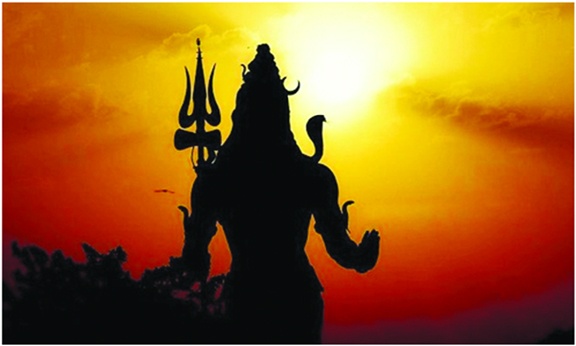
Shravan month and Sawan month are considered very sacred in the Hindu calendar. Sawan month is dedicated to Lord Shiva. Worshiping Lord Shiva in this entire month is considered auspicious. In the month of Sawan, many types of fasts are kept to please Lord Shiva.
In the states of northern India, the month of Shravan is also known as the month of Sawan. All Mondays or Mondays falling during the month of Sawan are considered highly auspicious for fasting and are known as Shravan Somwar or Sawan Somwar Vrat. Many devotees observe a fast on Solah Somvar or Solah Somvar from the first Monday of the month of Sawan.
All Tuesdays or Tuesdays in the month of Shravan are dedicated to Goddess Parvati, the wife of Lord Shiva. The fast of Tuesday in the month of Shravan is known as Mangal Gauri Vrat. Sawan Shivratri and Hariyali Amavasya are other auspicious days of the month of Shravan.
Legend
According to Hindu mythology, when King Daksha insulted Lord Shiva, Goddess Sati, out of anger, sacrificed her body with yoga shakti at her father Daksha’s house. Before leaving the body of Goddess Sati, she had vowed to have Mahadev as her husband in every birth. In her second birth, Goddess Sati was born as a daughter by the name of Parvati in Himachal and Queen Maina’s house. Parvati observed a strict fast in the month of her youth, after being fasted, and pleased her and married her, only after which it became special for Mahadev.
The fasts, festivals in Shravan
Sawan Somvar Vrat
Somvar fast is an important day in Hinduism, this day is dedicated to Lord Shiva. On this day Shiva devotees fast for the whole day to get the blessings of Lord Shiva. After fasting for the whole day, one should eat during the day time, that is, one can take food once in the whole day. The importance of fasting on Mondays of Sawan and Shravan months is even more. The month of Sawan and Shravan is very dear to Lord Shiva. Lord Shiva and Mother Parvati are worshiped during this month.
Solah Somvar Vrat
Solah Somvar fasting holds special significance in Hinduism. All these days are dedicated to Lord Shiva. Anyone can fast on this sixteen Mondays, but unmarried girls do it especially so that they can get the desired groom. On this day Shiva devotees fast for the whole day to get the blessings of Lord Shiva. After fasting for the whole day, one should take food during the day time i.e. one can take food once in the whole day.
Shiva, Parvati, Ganesh and Nandi are worshiped in this fast. Water, Milk, Curd, Sugar, Ghee, Honey, Panchamrit, Kalava, Clothing, Yagyopaveet, Sandalwood, Roli, Rice, Flowers, Vilvapatra, Eastern, Vijaya, Arak, Datura, Kamal Gatta, Betel nut, Clove, Cardamom, Panchmeva, Lord Shiva should be worshiped with incense, and dakshina. There is a law to eat food only once after worship. One should listen to the greatness of this Dil Solah Somwar Vrat Katha.
Mangala Gauri Vrat
All the Tuesdays in the month of Shravan, all fasts are called Mangla Gauri fast. This fast is called Mangla Gauri Vrat due to fasting on Tuesday. In the Hindu calendar, the month of Shravan is dedicated to Lord Shiva and Mata Gauri. The woman doing this fast during the month of Shravan or, from the beginning of the month of Shravan, decides to fast for the next sixteen weeks. Mangal Gauri fast is observed only by women. Women, mainly newly married women, perform this fast to obtain the blessings of Mother Gauri for a happy married life.
Sawan Shivratri
Sawan Shivratri which is celebrated as Sawan Shivratri on Chaturdashi Tithi during Krishna Paksha of Sawan month. There are 12 Shivratri in a year which comes in every month but Shivratri of Sawan is special. The month of Sawan is very dear to Lord Shiva. Shiva devotees observe fast for the whole year i.e. monthly Shivratri, but one who is not able to fast for every monthly Shivratri, then he must observe the fast of Shivaratri of Sawan.
Some Shiva devotees have to organize Maha Rudra-Abhishek in the Shivaratri of Sawan. So that by getting the blessings of Lord Shiva, one can get happiness, peace and blessings of Mahodav.
Hariyali Amavasya
Amavasya falling in the month of Sawan and Shravan is called Hariyali Amavasya. Hariyali Amavasya is considered a very auspicious day. The day of Hariyali Amavasya is important for Shiva devotees, hence Lord Shiva is worshiped on this day. Generally, Hariyali Amavasya falls three days before the famous Hariyali Teej. This day is called Hariyali Amavasya because there is greenery all around in the month of Sawan. That’s why this festival is called the festival of greenery. Apart from this, plants are also planted on this day for the fulfillment of various wishes. On this date, prosperity and prosperity can be obtained through plants.
Govardhan Parikrama
Govardhan Parikrama is a famous pilgrimage center for Hindus. In this parikrama, Govardhan Parvat is circled which is about 21 kilometers. This Govardhan pilgrimage site is located in the Indian state of Uttar Pradesh, District Mathura. Govardhan Parvat is also known as Giriraj. The purpose of this parikrama is to get the blessings of Lord Krishna. It is the sacred center of Braj and is recognized as a natural form of Lord Krishna himself. This mountain is made of small sand stones. The length of this mountain is 8 km. is. This place is a very important pilgrimage center in Hinduism. This parikrama is done throughout the year. Devotees come from all the states of India to do the parikrama, but in North India, this parikrama is very famous, so most of the devotees come from North India. It takes about 5 to 6 hours to complete this parikrama.
Kanwar Yatra
Kanwar yatra or Kavad yatra is an annual pilgrimage of Lord Shiva. It starts in the month of July or August or the month of Saavan as per Hindu calendar. During this pilgrimage, the devotees of Lord Shiva fill the water from the Holy Ganges at Gangotri, Gaumukh and Haridwar in their Kanwar and bring the same to their native place. Then they offer this water to Lord Shiva and perform His Jalabhishek. The devotees from different part of India especially West Uttar Pradesh, Haryana, and Delhi take part in this pilgrimage. The devotes start their pilgrimage from Haridwar or Gaumukh and reach their native place on or before Shivratri. On the day of Shivratri festival, the holy water is offered to Lord Shiva on His Shiv-linga.





Be the first to comment